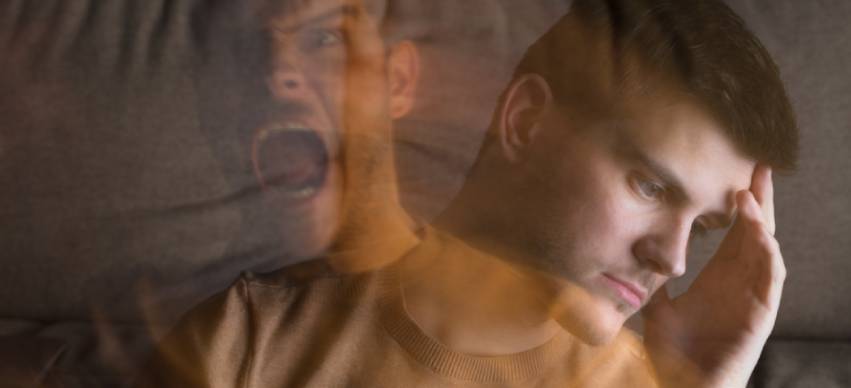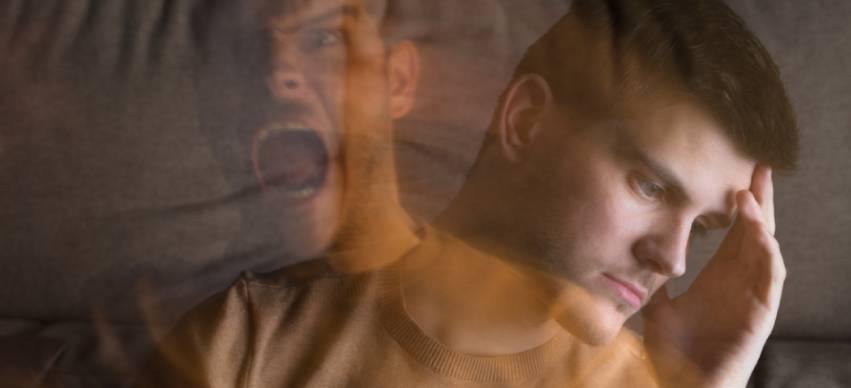
Bipolar disorder is a disease that leads to intense mood swings and changes in behavior, thought patterns, and energy. A person suffering from this disorder is unstable and unpredictable and should seek medical attention immediately. They have mania and depression now and then, and there’s no telling how long it’ll take before they switch. Bipolar disorder is likely to disrupt your life, especially if left untreated. The ups and downs episodes are devastating and can make it nearly impossible for you to live a normal, productive, and steady life. You may be hyperactive and irresponsible when having a mania episode and inactive and lazy in a depression episode. However, getting early treatment and diagnosis can help reduce the impacts and occurrence of these episodes. The effect of bipolar varies from one person to the other and makes it difficult for doctors to treat it. Most doctors recommend a combination of different factors for a successful treatment instead of relying on medications alone, but recovery doesn’t happen overnight. It’s a journey that requires commitment and finding the proper treatment. Here are three treatment options for bipolar disorder to help you get started on your recovery journey:
1. Medications
Bipolar disorder may ruin how you see yourself and everything around you. However, with the right combination of medication and other treatment methods, you can control it. There are many types of bipolar medicines for regulating highs and lows (ups and downs). You may take the manic and depression drugs all at once or separately according to your doctor's prescription.
Medication is known to work and is among the best forms of treatment for bipolar disorder. However, these medications don’t necessarily cure you but help stabilize your moods. Consult with your doctor to know which drug works best for you. But here are some medication options you could try:
- Mood Stabilizers: Mood stabilizers are medications for treating bipolar disorder and other psychotic disorders by controlling the ups and downs occurrences. The common types of these stabilizers include:
- Anticonvulsants: They’re mood stabilizers that regulate nerve impulses and how they travel through the nerve cells. It helps reduce seizures and some mental disorders that could cause it. However, you shouldn’t use this stabilizer if you’re expectant; your baby might be born with defects.
- Lithium: Lithium is a mood stabilizer for treating bipolar disorders and other mental problems. Doctors prescribe it as lithium citrate or carbonate. However, it has some unpleasant side effects such as:
- Fatigue and headaches
- Gastrointestinal problems
- Weight gain
- Extreme thirst
- Antidepressants And Anti-Anxiety Medications: They relieve depression symptoms and treat seasonal affective disorder and social anxiety disorder. Depression is an emotional and mental health condition that's accompanied by anxiety. It usually affects older children and teenagers. These episodes can last for a short or long period once in a while or multiple times. However, antidepressants help control these episodes by balancing neurotransmitters responsible for mood swings. You need to get the correct type of antidepressants to get better. Ensure you visit your doctor first before getting any of this medication. The different types of antidepressants include:

- Tricyclic Antidepressants (TCAs): TCAs are also known as cyclic antidepressants. The Food and Drug Administration (FDA) approves these drugs as good remedies for treating depression, bedwetting, and psychoneurotic disorder. These antidepressants may also treat other health problems and symptoms that are non-FDA approved, like bulimia, chronic pain and itching, panic disorder, and premenstrual pains.TCAs cause a reaction in your body that eases depression. It does this by blocking acetylcholine and histamine effects and increasing serotonin and norepinephrine levels. They are productive but may cause sedation. However, they’re known to have side effects, and doctors are shifting to the prescription of other antidepressants. The possible side effects of TCAs include:
- Dry mouth and eyes
- Dizziness and fatigue
- Low blood pressure and weight gain
- Headaches and drowsiness
- Seizures and nausea
- Blurred vision
- Sexual dysfunction
- Selective Serotonin Reuptake Inhibitors (SSRIs): SSRIs are antidepressants most doctors prescribe because they’re compatible with most people and have fewer side effects compared to the rest. They help reduce depression and other mental disturbances by increasing the serotonin levels in the brain. Some of the side effects of SSRIs include:
- Headaches and blurry vision
- Nervousness and agitation
- Stomach upsets, diarrhea, and nausea
- Sexual dysfunction
- Insomnia
- Noradrenaline And Specific Serotonergic Antidepressants (NaSSAs): NaSSAs are psychiatric medications for treating bipolar disorders like obsessive-compulsive disorder (OCD), generalized anxiety disorder (GCD), and major depressive disorder (MDD), just like other antidepressants. They increase the levels of neurotransmitters responsible for balancing your mood. The side effects of NaSSAs are similar to those of SSRIs.
- Serotonin And Norepinephrine Reuptake Inhibitors (SNRIs): SNRIs are effective medications for treating bipolar disorder, chronic pain, and anxiety. They increase norepinephrine and serotonin levels by blocking their reabsorption in the brain. The side effects of these anti-depressants are also similar to the effects of SSRIs.
- Monoamine Oxidase Inhibitors (MAOIs): They're also medications for treating depression. They prevent the reactions of monoamine oxidase enzymes. These enzymes break down norepinephrine, serotonin, and dopamine neurotransmitters. Blocking the monoamine oxidase enzymes increases these neurotransmitter levels and reduces anxiety and depression.
However, medical professionals only prescribe MAOIs when other antidepressants aren’t effective because they’re riskier. The side effects of these antidepressants may include:
- Weight gain
- Skin reaction
- Muscle pains
- Low blood pressure
- Myoclonus
- Insomnia and headaches
- Edema
- Dizziness
- Paresthesia
- Sexual dysfunction
- Antipsychotics: They’re psychiatric medications used to treat psychotic experiences, bipolar disorder, and other health problems. Antipsychotics come as tablets, inhalers, depot injections, and liquids. They don’t heal the condition but reduce the effects and the recurrence of mania episodes, stabilizing your mood. There are two types:
2. Lifestyle Changes
A combination of medications and lifestyle changes may help you manage or control your ups and downs and lead a healthy life. The lifestyle changes to consider include:
- Diet Change: A healthy diet will help improve your overall health and avoid many diet-related diseases. Bipolar disorder is no different. You can start with reducing your weight or cholesterol levels because they are common factors leading to depression, especially in teenagers. To maintain a healthy diet, you should:
- Have a meal plan: It’ll help you know what to look for when you’re out shopping.
- Eat at regular intervals: The body needs the energy to function, and eating from time to time provides the body with the fat it needs to generate strength.
- Keep your diet varied: Ensure whatever you're eating is well-balanced. Consider consuming a lot of fatty fish and fish oil for omega-3. Omega-3 will help reduce aggression, depression, and irritability, improve brain functioning, and stabilize your mood. However, you may experience stomach pains, diarrhea, bloating, heartburn, nausea, and belching if you ingest too much fish oil. Your diet should always contain vitamins, bacteria, stimulants, and other nutrients that help with psychotic disorders. They include:
- Vitamin B12
- Magnesium
- Choline
- Vitamin C
- Vitamin B9
- Inositol
- Creatine
- Rhodiola Rosea
- Probiotics
- Regular Exercises: Exercising will help balance your mood and reduce many health complications. It also helps prevent other health problems and improves the quality of life and body functioning.
- Exercise Moderation: It won’t be a surprise if you’re bipolar and engage in addictive activities that may lead to depression and regular breakdowns. To counter this, pay more attention to your daily activities and ask for help if you notice any changes.
- Get Enough Sleep: Sleep is good therapy for the brain and the entire body. It keeps your mood in check and maintains normal body functioning.
3. Physiotherapy
Using medications alone may not be an effective treatment for bipolar disorder. Most doctors will advise you to mix it with physiotherapy, lifestyle changes, and other techniques to calm your nerves. Therapy helps you understand the disease better and improves your adherence to prescriptions. Here are some therapy programs you could try:
- Interpersonal And Social Rhythm Therapy (IPSRT): It’s a therapy program for people with bipolar disorder to help them manage strenuous events, adhere to medications, and have a normal social rhythm. In IPSRT, your therapist asks a series of questions to help her understand what your triggers are and tries to help you see things from a different point of view. It’s an effective form of treatment if you attend all your therapy sessions.
- Cognitive Behavior Therapy (CBT): It involves changing your approach to perceiving things. It’s said that most problems you go through start from your mind, and if you can try to have only positive thoughts, it’ll help control your episodes. It can help you adopt healthy behavior and notice warming changes in your moods.
4. Calming Techniques
Calming techniques don’t cure bipolar disorder but help you control them like other treatments. They help reduce anxiety, stress, depression, and manic episodes. Combine these techniques with other forms of treatment and see your life transform. These activities include:
- Meditation
- Massage Therapy
- Acupuncture
- Yoga
Conclusion
Bipolar disorder is a condition that leads to changes in the moods and behaviors of a person. If you’re bipolar, you’re likely to experience manic and depressive episodes that are inconsistent. However, there are different treatment options such as medications, therapy, lifestyle changes, and calming techniques you could consider. Treating bipolar disorder is out of the question, but you can prevent its progress and manage it by following the treatment plan, leading a healthy life, and having regular sleep patterns.


